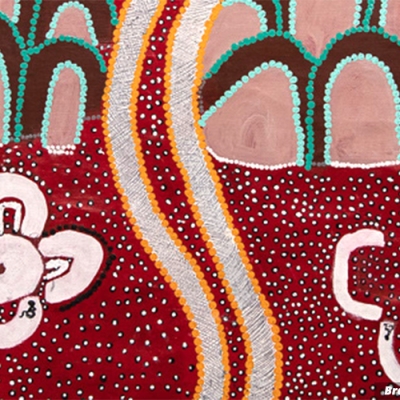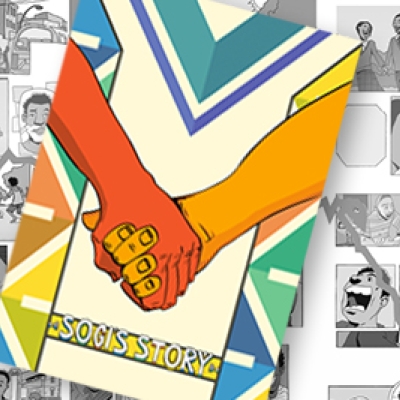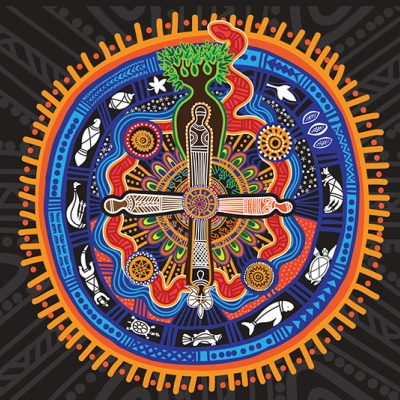Refine results
-
14 December 2012Book page
Native Title Report 2008 - Case Study 2
The landscape of the Murray-Darling Basin (MDB) is under severe ecological stress. Issues such as salinity, poor water quality, stressed forests, dried wetlands, threatened native species, feral animals and noxious weeds are commonplace within the MDB. The reasons for this dramatic decline in river health are caused by water mismanagement including reversal of natural flow cycles and over… -
Sex Discrimination9 July 2018Media Release
Submissions to the National Inquiry into sexual harassment in Australian workplaces open today.
The National Inquiry, led by the Australian Sex Discrimination Commissioner Kate Jenkins, is seeking submissions from individuals and organisations across the country about their experiences relating to workplace sexual harassment. “There is enormous international interest in the work we are doing in Australia. This National Inquiry is the first of its kind in the world and will be closely -
Age Discrimination18 May 2021Publication

Employing and retaining older workers (2021)
The aim of the study was to understand organisations’ strategies to recruit and retain older workers, and how COVID-19 has impacted these strategies. -
Commission – General19 August 2016Webpage
Robynne Quiggin - Deputy Aboriginal and Torres Strait Islander Social Justice Commissioner
Ms Robynne Quiggin Former Deputy Aboriginal and Torres Strait Islander Social Justice Commissioner 2016 - 2017 Robynne Quiggin was the Deputy Aboriginal and Torres Strait Islander Social Justice Commissioner from 1 August 2016 to 9 February 2017. Robynne is a Wiradjuri lawyer and has worked across legal and policy areas of relevance to Aboriginal and Torres Strait Islander Australians… -
Education28 November 2014Publication
RightsEd: Tackling Disability Discrimination in Sport
Almost 4 million Australians live with disabilities. If we add families, friends and colleagues, the number of people affected by disability is larger still. This resource explores how we can protect the rights of people with disability in sport. -
Aboriginal and Torres Strait Islander Social Justice16 March 2020Publication

Close the Gap (2020)
We nurture our culture for our future, and our culture nurtures us. A report prepared by the Lowitja Institute for the Close the Gap Steering Committee | March 2020 Executive Summary With this report — We nurture our culture for our future, and our culture nurtures us — we have sought to reflect the reciprocal and cyclical relationship between culture and wellbeing, whereby nurturing culture… -
13 April 2015Book page
Our Agenda
There is no simple way to solve complex human rights issues. From the challenges that face a person with a disability seeking independent living, through to immigration detention policy, the promotion of rights and freedoms must address issues for individuals as well as the need for broader, systemic change. The Commission uses a range of integrated approaches, while also focusing on… -
LGBTIQ+28 June 2017Project

Sogi's Story
This is SOGI’s Story, but it’s many others too. Discrimination on the basis of sexual orientation and gender identity is pervasive across many parts of the world. Addressing this burden of discrimination has been identified as a key issue by the Commonwealth Forum of National Human Rights Institutions. Recognising the importance and power of education, SOGI’s Story has been designed in -
Children's Rights4 December 2013Submission
Preventing sexual abuse of children in out of home care
Preventing sexual abuse of children in out of home care Australian Human Rights Commission Response to the Royal Commission into Institutional Responses to Child Sexual Abuse: Issue Paper 4 8 November 2013 Downloads Download in PDF Download in Word Table of Contents 1 Introduction 2 Recommendations 3 Outline of children’s rights in the context of children in out-of-home care 4 Data on the… -
14 December 2012Book page
Chapter 2 - Introduction: Social Justice Report 2009
Indigenous imprisonment rates in Australia are unacceptably high. Nationally, Indigenous adults are 13 times more likely to be imprisoned than non-Indigenous people[1] and Indigenous juveniles are 28 times more likely to be placed in juvenile detention than their non-Indigenous counterparts.[2] -
14 December 2012Book page
It's About Time - Chapter 4
4.1 Introduction 4.2 The key issues 4.3 Workplace relations framework 4.4 Recognising the relationship between paid work and caring work 4.5 Certainty and flexibility in the workplace 4.6 Structural change to support gender and carer equality 4.7 The need for expanded legal rights 4.8 Workplace culture and use of family-friendly policies 4.9 A life cycle approach to work and a universal approach… -
Sex Discrimination19 June 2018Media Release
National inquiry into sexual harassment in Australian workplaces
The Sex Discrimination Commissioner Kate Jenkins will today announce a national inquiry into sexual harassment in Australian workplaces. Commissioner Jenkins said the global conversation about sexual harassment and the #MeToo movement has exposed the true prevalence of the problem and the harm it causes to individuals, workplaces and society. “The National Inquiry will involve an in-depth -
Aboriginal and Torres Strait Islander Social Justice6 December 2017Project

Bringing Them Home - interactive educational resource
Bringing them Home was the name given to the final report of the National Inquiry into the Separation of Aboriginal and Torres Strait Islander Children from Their Families conducted by the Human Rights and Equal Opportunity Commission (now called the Australian Human Rights Commission). The National Inquiry into the Separation of Aboriginal and Torres Strait Islander Children from Their… -
14 December 2012Book page
National Inquiry into Children in Immigration Detention
The United Nations Youth Association of Australia welcomes the opportunity to contribute to the Human Rights and Equal Opportunity Commission Inquiry into Children in Immigration Detention. The issue of immigration detention for children has been coming under increased scrutiny in the past eight months. As far as it affects our international standing, the standards by which we treat children and… -
Legal14 December 2012Webpage
Independent Interim Report on CEDAW
Para 29: The Committee encourages the State party to continue its efforts to tackle the persistent problem of violence against women and urges the State party to adopt national legislation and adopt, implement and adequately fund as a matter of urgency the National Action Plan to Reduce Violence against Women and Their Children, including a mechanism for independent monitoring. -
Legal14 December 2012Webpage
Decision to decline to grant a temporary exemption sought by the University of Western Sydney
By this instrument, the Human Rights and Equal Opportunity Commission (‘HREOC’) declines to grant to University of Western Sydney (‘UWS’) a temporary exemption pursuant to s 44(1) of the Age Discrimination Act 2004 (Cth) (‘ADA’). -
Sex Discrimination14 December 2012Speech
It's Over to You
We all know why we're here today. You're here because men aren't seeing enough of their children, that after divorce they're lone fathers if they're lucky and cheque books on legs if things turn out badly. Sadly, there are some men who just disappear as dads altogether. -
Rights and Freedoms14 December 2012Speech
Launch of Rights of Passage: Dr Sev Ozdowski (2005)
I would like to welcome everybody to the launch of Rights of Passage: A Dialogue with Young Australians about Human Rights. I thank you all for coming. -
Disability Rights14 December 2012Speech
Speech - iPhone or Trombone: Age or Disability Don't Have to be Barriers (2012)
Alan used to work as a civil engineer, and is a trombone player with two orchestras and two bands. He has competed in the Australian Band Championships for the last three years. He sold his soils laboratory to 'retire', and has never looked back. He still works part-time in soil testing, but as well as trombone playing he is a volunteer in a Rotary shop, walks 30-40 kilometers weekly, won a… -
Rights and Freedoms14 December 2012Speech
Surviving the bush: health and rural communities: Chris Sidoti (1999)
I would like to thank the Victorian Healthcare Association for inviting me to speak today. I hope that the Congress has been stimulating and has provided all of you with both an understanding of the problems facing healthcare in Australia, and some sense of optimism for what can be achieved to improve the health outcomes for all Australians.
